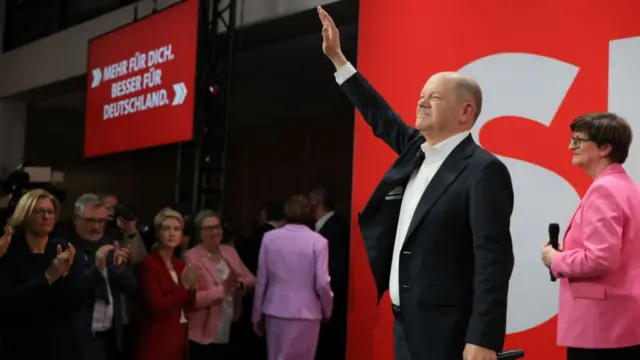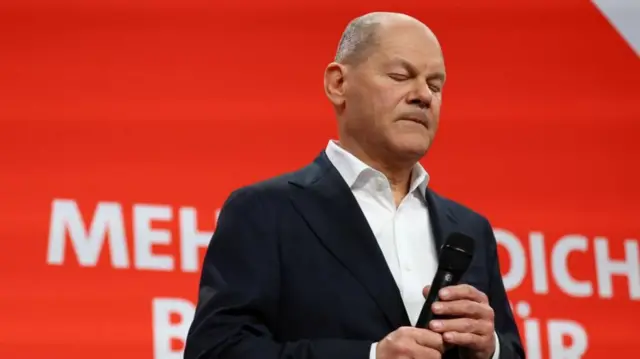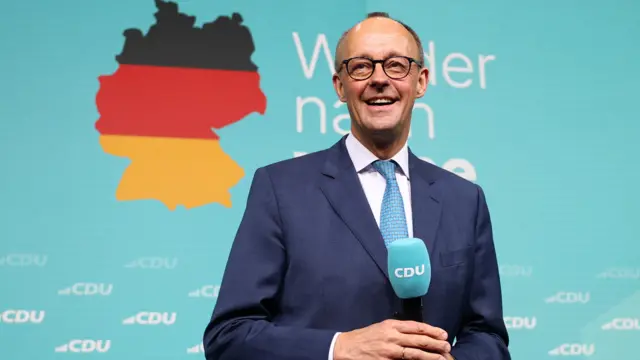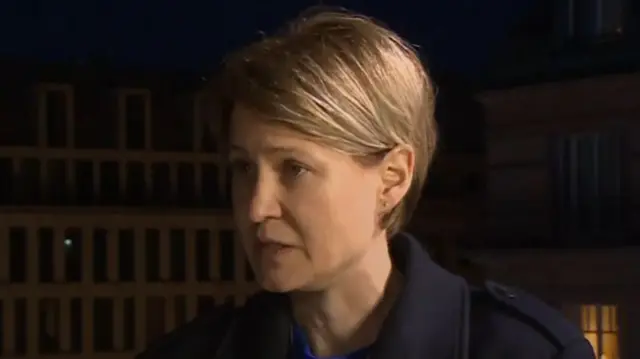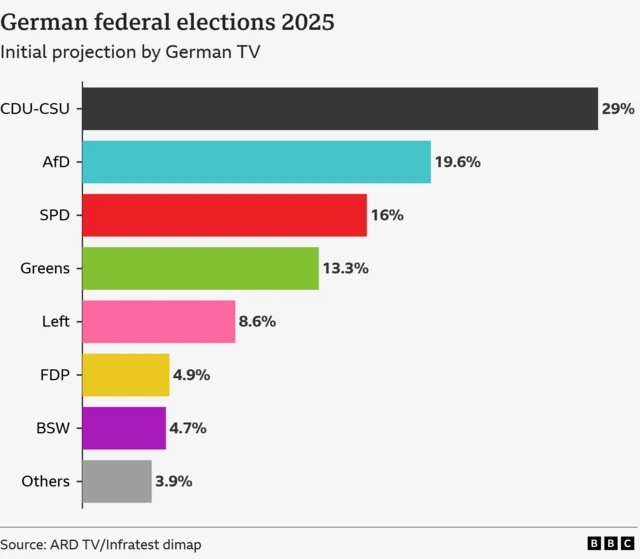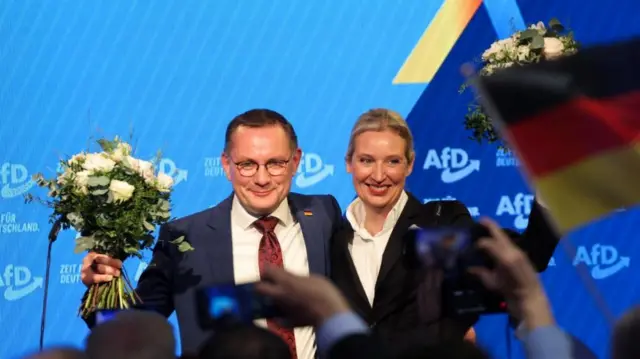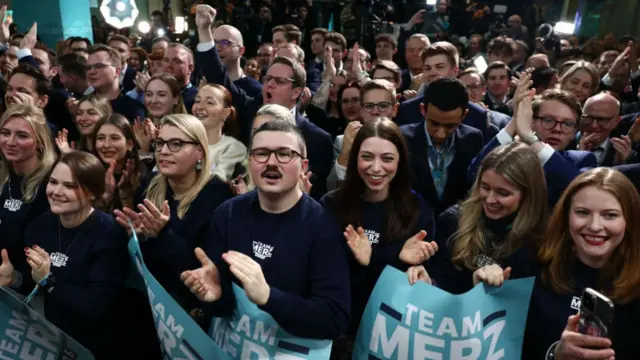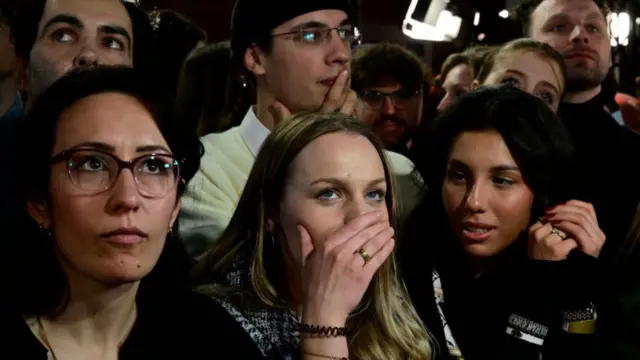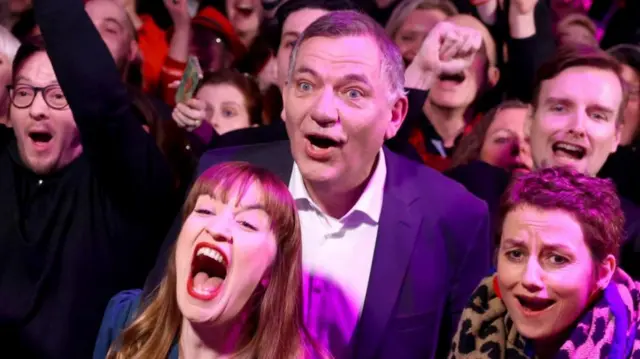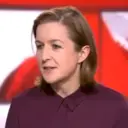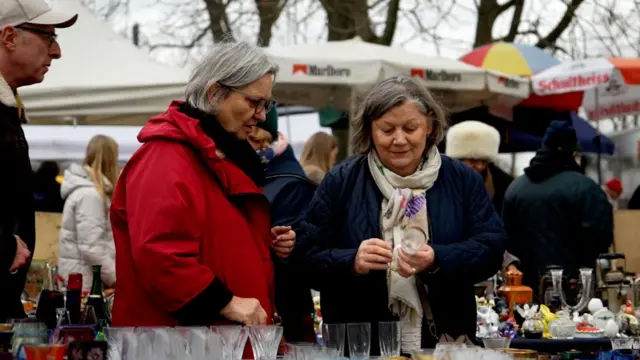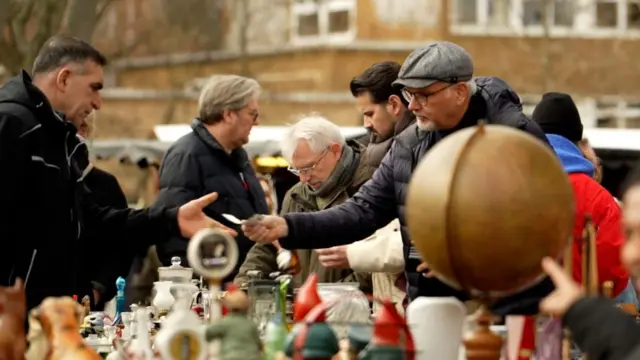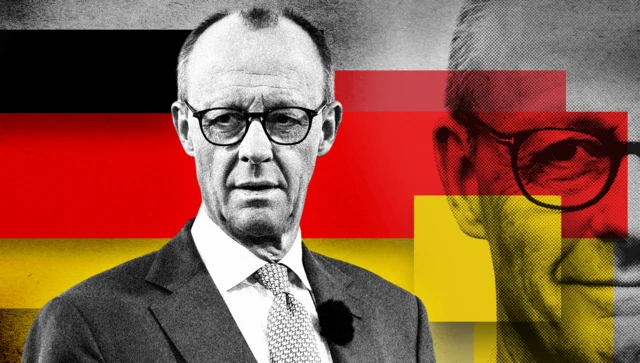'We have won the election'published at 18:29 GMT 23 February
Kristina Volk
Reporting from CDU headquarters in Berlin
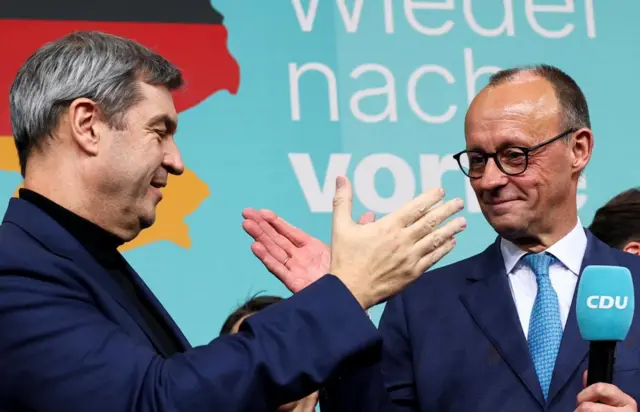 Image source, Reuters
Image source, ReutersChristian Social Union (CSU) chairman Markus Söder and Friedrich Merz
Merz was greeted with cheers when he stepped onto the stage at the CDU headquarters in Berlin.
He was joined by the head of the CSU, Markus Söder, thanked the voters for their trust and proclaimed: "We have won the Bundestag election".
He says it has been "a historic election night" for his conservative party, and that the CDU and its sister party in Bavaria, the CSU, "worked very well together and prepared very well for this election".
Merz adds that he is "aware of the responsibility that now lies ahead" of him.
He tells the crowd that they need to "quickly regain our ability to act so that we can do the right thing at home, so that we are once again present in Europe, so that the world can see that Germany is being governed reliably again".
But that starts tomorrow, he says. Right now, it's time to celebrate.


